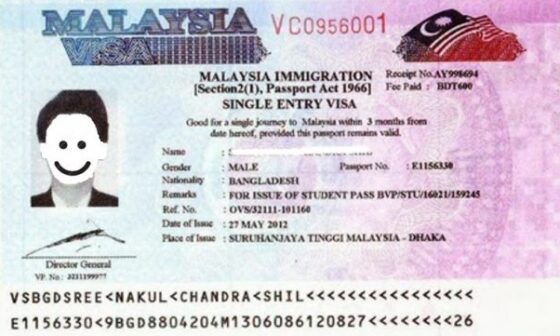Canada is a popular destination for skilled physiotherapists seeking visa sponsorship due to its aging population and increasing demand for rehabilitation services. Healthcare facilities, rehabilitation centers, and private clinics often seek qualified foreign professionals for these roles.
Immigrants with the right qualifications can secure visa sponsorship through programs like the Temporary Foreign Worker Program (TFWP) or Provincial Nominee Programs (PNP). Canada requires certain educational, licensing, and certification requirements, making it an ideal destination for career growth and international experience.
Entry-Level Skills And Experience Required For Physiotherapist Jobs In Canada
To work as a physiotherapist in Canada, entry-level candidates need a blend of educational qualifications, technical skills, and personal attributes. Below are the key skills and experience requirements:
1. Educational Requirements
- Bachelor’s or Master’s Degree in Physiotherapy.
- Accreditation by Canadian Universities (If Trained Abroad).
2. Licensing and Certification
- Licensure from Provincial Regulatory Bodies.
- Passing the Physiotherapy Competency Examination (PCE).
3. Technical Skills
- Knowledge of Human Anatomy and Physiology.
- Assessment and Diagnosis Skills.
- Manual Therapy and Rehabilitation Techniques.
4. Soft Skills
- Communication Skills.
- Empathy and Patience.
- Problem-Solving and Critical Thinking.
5. Work Experience
- Internships or Clinical Placements.
- Basic Experience in Healthcare Settings.
Physiotherapist Salary Expectations for Immigrants in Canada
Below is a table outlining the average salary expectations for physiotherapists across different Canadian provinces and territories. Salaries vary based on location, level of experience, and the specific healthcare facility.
| Region | Average Annual Salary (CAD) |
|---|---|
| Alberta | $75,000 – $95,000 |
| British Columbia | $70,000 – $90,000 |
| Ontario | $65,000 – $85,000 |
| Quebec | $60,000 – $80,000 |
| Manitoba | $65,000 – $85,000 |
| Nova Scotia | $60,000 – $80,000 |
| Saskatchewan | $70,000 – $90,000 |
| Newfoundland and Labrador | $65,000 – $85,000 |
| Northwest Territories | $80,000 – $100,000 |
| Prince Edward Island | $60,000 – $75,000 |
Physiotherapists in Canada can expect to earn an average annual salary between $60,000 and $100,000, depending on the province or territory. Salaries tend to be higher in northern regions like the Northwest Territories, while provinces such as Alberta, British Columbia, and Saskatchewan offer competitive pay as well.
More urbanized areas like Ontario and Quebec may offer lower starting salaries but often provide opportunities for advancement and higher earning potential with experience.
Top 5 Healthcare Organizations Hiring Physiotherapists in Canada
1. Lifemark Health Group
- Location: Nationwide (offices across Canada)
- Link: Lifemark Health Group Careers
2. CBI Health Group
- Location: Nationwide (offices in major cities)
- Link: CBI Health Careers
3. VHA Home HealthCare
- Location: Ontario
- Link: VHA Home HealthCare Jobs
4. pt Health
- Location: Ontario, Alberta, Nova Scotia
- Link: pt Health Careers
5. Saint Elizabeth Health Care (SE Health)
- Location: Ontario, Alberta, British Columbia
- Link: SE Health Careers
Visa Types And Visa Requirements For Employment As A Physiotherapist In Canada
1. Temporary Work Permit
A Temporary Work Permit allows foreign-trained physiotherapists to work in Canada for a specific employer and time period. To obtain this permit, candidates must have a job offer from a Canadian employer.
Requirements:
- Job Offer: A valid job offer from a Canadian employer is essential. The employer must demonstrate that no qualified Canadian workers are available for the position.
- Labour Market Impact Assessment (LMIA): The employer must obtain a positive LMIA from Employment and Social Development Canada (ESDC), which verifies the need for foreign workers.
- Physiotherapy Certification: You must have your physiotherapy qualifications recognized in Canada, typically by passing the Physiotherapy Competency Examination (PCE) administered by the Canadian Alliance of Physiotherapy Regulators (CAPR).
- Provincial Licensure: Obtain licensure from the regulatory body of the province or territory where you plan to work (e.g., College of Physiotherapists of Ontario).
- Language Proficiency: Proficiency in English or French may be required depending on the province.
- Visa Application: Submit the application through Immigration, Refugees and Citizenship Canada (IRCC) with the necessary documentation, including the LMIA, job offer letter, and proof of qualifications.
2. Express Entry – Federal Skilled Worker Program (FSWP)
The Express Entry system allows skilled workers, including physiotherapists, to apply for permanent residency in Canada. The Federal Skilled Worker Program (FSWP) is one of the main pathways for immigration.
Requirements:
- Educational Credential Assessment (ECA): Have your physiotherapy degree assessed to ensure it meets Canadian standards. This can be done through organizations such as the World Education Services (WES).
- Work Experience: At least one year of full-time, skilled work experience as a physiotherapist.
- Language Proficiency: A minimum score on language tests such as IELTS (English) or TEF (French) is required. Higher scores improve your ranking in the Express Entry pool.
- Comprehensive Ranking System (CRS) Score: You will be ranked based on factors such as age, education, work experience, and language ability. Those with the highest scores are invited to apply for permanent residency.
- CAPR Certification: In most cases, foreign-trained physiotherapists will need to pass the PCE to be recognized as licensed professionals in Canada.
3. Provincial Nominee Program (PNP)
Each province in Canada has its own Provincial Nominee Program (PNP), which allows provinces to nominate foreign workers based on their labor market needs. Physiotherapists may be eligible for nomination under PNP programs if their occupation is in high demand in a particular province.
Requirements:
- Job Offer or Work Experience in a Province: Some PNPs require a valid job offer from a local employer, while others nominate candidates based on work experience in a specific region.
- Education and Certification: Educational qualifications must be assessed, and physiotherapists must obtain certification and licensing in the province where they plan to work.
- Express Entry Pathway: Some PNP streams are linked to Express Entry, allowing you to gain extra points for a provincial nomination, which can lead to an invitation to apply for permanent residency.
- Language Proficiency: Similar to the Express Entry system, PNP programs require language proficiency in English or French.
4. Atlantic Immigration Program (AIP)
The Atlantic Immigration Program is designed to attract skilled workers to Canada’s Atlantic provinces (Newfoundland and Labrador, Prince Edward Island, Nova Scotia, and New Brunswick). Physiotherapists can apply for permanent residency under this program if they receive a job offer from an employer in the region.
Requirements:
- Job Offer: A valid job offer from a designated employer in one of the Atlantic provinces.
- Education and Certification: Educational credential assessment and CAPR certification are necessary to practice as a licensed physiotherapist.
- Work Experience: At least one year of work experience in your field is typically required.
- Language Proficiency: Demonstrate sufficient proficiency in English or French.
- Settlement Plan: Candidates must create a settlement plan to ensure successful integration into the region.
5. International Mobility Program (IMP)
The International Mobility Program (IMP) allows foreign workers to be hired without the need for an LMIA if the role is deemed to provide a significant benefit to Canada or is covered by a trade agreement, such as the Canada-European Union Comprehensive Economic and Trade Agreement (CETA).
Requirements:
- Job Offer: A job offer from a Canadian employer, but without the need for an LMIA.
- Licensure: Physiotherapists must be licensed in the province where they intend to work.
- Eligible Countries: The program mainly benefits workers from countries with free trade agreements with Canada, like the EU.
General Visa Requirements for Physiotherapists:
- Valid Passport.
- Proof of Funds.
- Medical Examination.
- Police Clearance Certificate.
How to Apply for Physiotherapist Jobs as an Immigrant in Canada
1. Get Your Credentials Assessed
- If you were trained as a physiotherapist outside of Canada, you must first have your credentials assessed by the Canadian Alliance of Physiotherapy Regulators (CAPR).
- Visit the CAPR website to learn how to submit your academic and professional qualifications for review.
2. Pass the Physiotherapy Competency Examination (PCE)
- To practice physiotherapy in Canada, immigrants must pass the Physiotherapy Competency Examination (PCE). This two-part exam includes a written component and a clinical component.
- Learn more and register for the exam on the CAPR PCE page.
3. Apply for Provincial Licensure
- After passing the PCE, you must register with the provincial or territorial regulatory body where you intend to work.
- Examples of regulatory bodies:
- Ontario: College of Physiotherapists of Ontario
- British Columbia: College of Physical Therapists of British Columbia
- Alberta: Physiotherapy Alberta
4. Search for Jobs
- Use the employment websites listed above to find job openings for physiotherapists. Make sure to target provinces or regions that are actively hiring and offer visa sponsorship for foreign workers.
5. Secure a Job Offer
- Most foreign workers will need a valid job offer from a Canadian employer before applying for a visa. When you find a suitable job posting, apply by submitting a resume, cover letter, and proof of your credentials.
- Ensure your resume is tailored to the Canadian job market. Highlight your education, professional experience, and any certifications or exams passed (such as the PCE).
6. Apply for a Work Permit or Permanent Residency
- Depending on your situation and the job offer, you can apply for a Temporary Work Permit, Provincial Nominee Program (PNP), or through Express Entry as part of the Federal Skilled Worker Program.
- Ensure your employer provides a positive Labour Market Impact Assessment (LMIA) if needed, as this document proves that the employer could not find a Canadian worker to fill the role.
7. Submit Your Visa Application
- Once you have a job offer, you can submit your visa application to Immigration, Refugees and Citizenship Canada (IRCC).
- Gather all required documents, including:
- Job offer letter
- LMIA (if required)
- Proof of education and certification (e.g., PCE results)
- Language proficiency test results (e.g., IELTS)
- Medical exam results (if applicable)
Conclusion
Canada offers excellent opportunities for physiotherapists due to the country’s high demand for healthcare professionals. Immigrants can secure employment and potentially gain permanent residency through visa sponsorship pathways like Temporary Work Permits, Express Entry, and Provincial Nominee Programs.
Key steps include obtaining credentials, passing exams, and obtaining provincial licensure. Immigrants can enjoy competitive salaries, comprehensive benefits, and a high quality of life in Canada’s thriving healthcare system.
Related:






